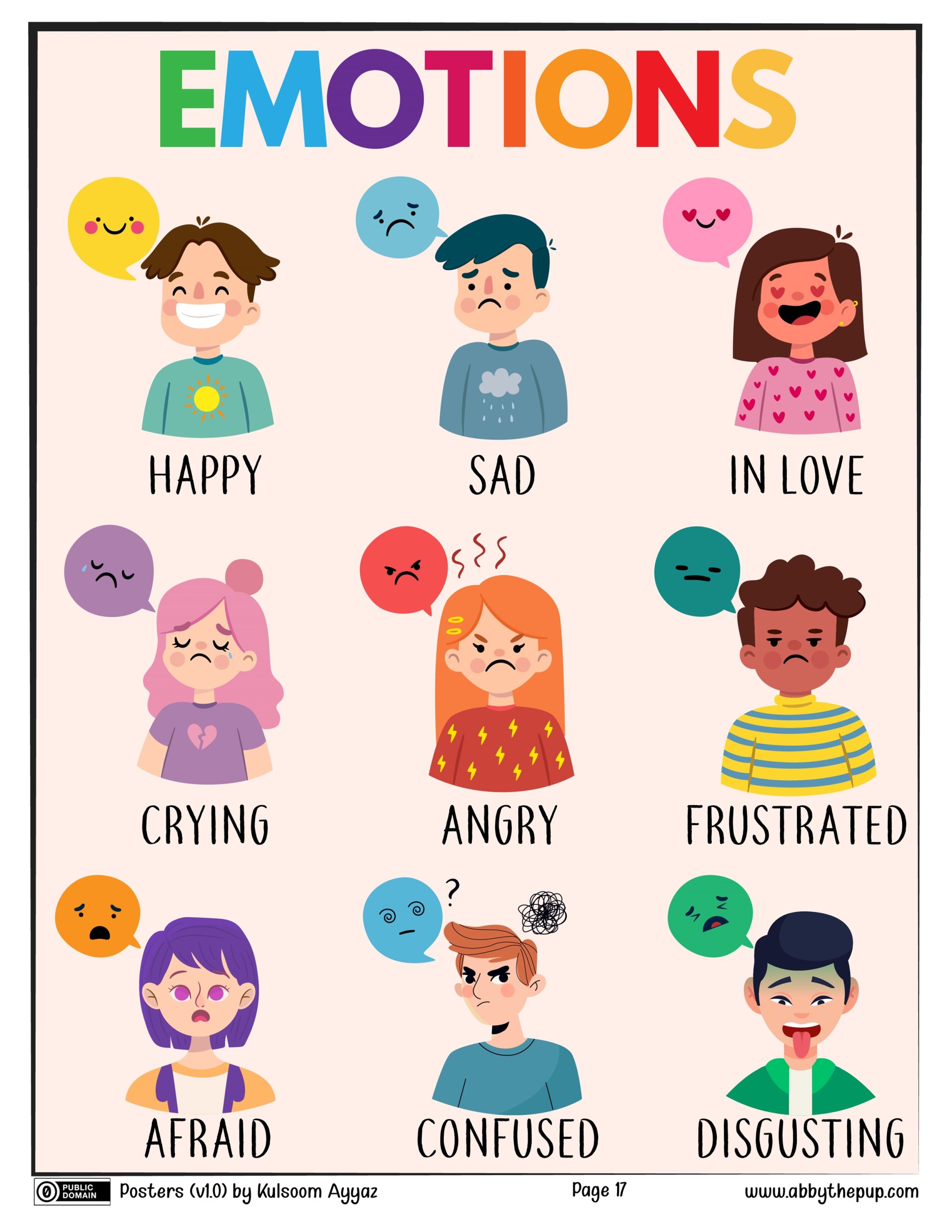Stress is an omnipresent aspect of modern life that can significantly impact our physical, mental, and emotional well-being. While numerous factors contribute to its occurrence, emotions play a vital role in the experience of stress. Understanding the connection between our emotions and the stress we experience is crucial in effectively managing and reducing its detrimental effects. In this article, we will delve into the intricate relationship between emotions and stress, identifying the key stress factors linked to different emotional states. By gaining insight into the emotions behind stress, we can empower ourselves to implement proactive strategies to mitigate its impact and foster a healthier, more balanced lifestyle.
Types of Emotions That Can Lead to Stress
When it comes to stress, emotions play a significant role in its development. Certain emotions can trigger a stress response in the body, leading to a range of physiological and psychological symptoms. Understanding the different types of emotions that can contribute to stress can help individuals identify and manage their stress levels effectively.
1. Anxiety: This emotion is characterized by feelings of unease, worry, or fear. Anxiety can be triggered by various situations or events, such as public speaking, job interviews, or social interactions. When anxiety becomes overwhelming, it can lead to chronic stress, negatively impacting both mental and physical well-being. Techniques like deep breathing exercises and mindfulness can help alleviate anxiety and reduce stress levels.
2. Frustration: Frustration arises when individuals face obstacles or challenges that hinder their progress or attainment of goals. It often goes hand in hand with feelings of irritability, impatience, and dissatisfaction. When left unchecked, prolonged frustration can lead to heightened stress levels and even contribute to the development of stress-related disorders. Coping strategies such as reframing perspectives, problem-solving, and seeking support can assist in managing frustration and minimizing stress.

Identifying Emotional Triggers: Recognizing Stress Factors
When it comes to managing our emotional well-being, recognizing the factors that trigger stress is crucial. By identifying our emotional triggers, we can work towards avoiding or managing them effectively. Here are some key points to help you identify those stress factors:
- Self-reflection: Take some time to reflect on your emotions and reactions in different situations. Notice any patterns or recurring themes that tend to cause stress. Self-awareness is a vital tool in identifying your emotional triggers.
- Physical symptoms: Pay attention to your body’s response to different situations. Do you experience a rapid heartbeat, tense muscles, or shallow breathing in specific circumstances? Physical symptoms like these can serve as indicators of emotional triggers.
- Thought patterns: Our thoughts play a significant role in how we experience stress. Take note of the recurring negative thoughts or irrational beliefs that tend to surface during stressful episodes. Recognizing these patterns can lead to breakthroughs in identifying your emotional triggers.
- Environmental factors: Certain environments or situations can trigger stress. It could be a crowded space, a particular noise, or even specific smells. Pay attention to your surroundings and the impact they have on your emotional state.
By following these guidelines and being mindful of your emotional experiences, you can develop a better understanding of your individual emotional triggers. Remember, everyone’s triggers are unique, and what may cause stress for one person might not affect another. Identifying these triggers is an essential step towards cultivating healthier coping mechanisms and promoting emotional well-being.
Understanding the Relationship Between Emotions and Stress
When it comes to , it is crucial to recognize that they are closely intertwined. Emotions can have a profound impact on our stress levels, and similarly, stress can greatly affect our emotional well-being. By delving deeper into this complex connection, we can gain insight into how our feelings and stress levels can influence one another.
1. Emotional Triggers: Certain emotions, such as anger, fear, or sadness, can trigger a stress response in the body. These emotions activate the release of stress hormones like cortisol, which can lead to physiological changes and increase our stress levels.
2. Stressors and Emotional Resilience: Experiencing prolonged or intense stress can take a toll on our emotional resilience. When confronted with chronic stressors, we may become more susceptible to negative emotions such as anxiety or depression.
3. Coping Strategies: While emotions can contribute to stress, they can also be effectively managed to reduce stress levels. Developing healthy coping strategies, such as practicing mindfulness, engaging in physical activity, or seeking social support, can help us better regulate emotions and alleviate stress.
In conclusion, understanding the intricate relationship between emotions and stress is essential for our overall well-being. By recognizing the emotional triggers, building emotional resilience, and implementing positive coping techniques, we can work towards maintaining a healthier balance between our emotions and stress levels.
Effective Strategies for Managing Emotional Stress
Strategies for Managing Emotional Stress
When it comes to dealing with emotional stress, having effective strategies in place is crucial for maintaining a healthy well-being. Here are some helpful techniques that can help you manage emotional stress and promote overall wellness:
- Practice mindfulness: Engaging in mindfulness exercises, such as meditation or deep breathing, can help bring your focus back to the present moment, easing feelings of stress and anxiety.
- Develop a support system: Building a network of supportive individuals who you can confide in and seek advice from is essential in times of emotional stress. Whether it’s friends, family, or a therapist, having a trustworthy support system can make a significant difference in your ability to cope.
- Engage in physical activity: Regular exercise is not only beneficial for your physical health but also for your mental well-being. Physical activity releases endorphins, the “feel-good” hormones, which can help reduce stress and promote a more positive outlook.
Embrace self-care: Taking care of yourself mentally and physically is crucial when managing emotional stress. Make time for activities that bring you joy and help you unwind, such as reading a book, taking a warm bath, or practicing a hobby you’re passionate about. Prioritizing self-care activities can promote relaxation and rejuvenation, enhancing your ability to handle stress more effectively.
To Wrap It Up
In conclusion, recognizing the emotions behind stress is essential in understanding and addressing the root causes of these overwhelming feelings. By identifying the stress factors linked to specific emotions, we not only gain insight into why stress occurs but also open the door to implementing effective strategies for managing and alleviating its impact on our well-being.
Throughout this article, we have explored how various emotions such as fear, anger, sadness, and overwhelm contribute to stress. We have learned that fear can manifest as stress when faced with uncertainty, while anger and frustration can result from a lack of control or unfair situations. Additionally, sadness and grief can increase stress levels, and an overwhelming sense of responsibility can lead to burnout.
Understanding these emotional triggers can help individuals proactively identify their stressors and develop coping mechanisms tailored to their unique needs. This knowledge empowers us to prioritize self-care, establish healthy boundaries, practice stress-reducing techniques, and seek support when needed.
It is important to note that everyone experiences stress in different ways and that emotions vary from person to person. While some may be more sensitive to certain stressors, others may find different factors more overwhelming. Therefore, it is crucial to explore our personal responses to stress, reflecting on our emotions and seeking professional help when necessary.
By strengthening our emotional intelligence and recognizing the link between our emotions and stress, we can embark on a journey towards greater resilience and well-being. Remember, stress is a part of life, but understanding its underlying emotions can empower us to navigate it with grace and transform our experiences into opportunities for growth and self-improvement.
Stress is a feeling that everyone is familiar with, and it can be both productive and destructive. Recent studies have found that stress can have a significant psychological impact on individuals. It can manifest as mental and physical health problems, and it often leads to feelings of anger, anxiety, and sadness. It is essential to further understand the emotions behind stress and the factors that induce it.
Examining the emotions associated with stress can help us identify its root causes. One common emotional reaction to stress is fear. Fear is a natural coping and survival response that helps protect us from danger. We can experience fear when we feel overwhelmed and unable to cope with a situation. This type of fear can be manifested in feelings of powerlessness and insecurity.
Anger is another emotion often linked to stress. It can be caused by frustration, disappointment, rejection, and unfair treatment. Anger can arise when we feel helpless or unable to cope with a situation. It may be felt towards ourselves or towards someone else.
Anxiety is another emotion that is often caused by stress. It can manifest in physical symptoms, such as a racing heartbeat, tightness in the chest, and difficulty breathing. It can also cause mental distress, such as intrusive thoughts, difficulty concentrating, fatigue, and difficulty sleeping.
Sadness, or depression, is a key emotion related to stress. It may arise when we feel helpless or lack control over a situation. It can manifest as a deep feeling of sadness, hopelessness, and loneliness. It may cause us to lose interest in activities we used to enjoy.
The factors that contribute to an individual’s experience of stress are unique to each person. However, there are some common stressors, such as financial strain, job loss, and economic instability. Other stressors may include family problems, relationships, and health issues. It is important to identify these stress factors and take steps to manage them.
To deal with stress, it is essential to identify the emotional responses that we are experiencing and address them. Working with a therapist can help us to manage our emotions and understand the underlying causes of our stress. It is also important to create a stress management plan. This means setting realistic goals, exercising, getting enough rest, eating healthy, and engaging in enjoyable activities.
The emotions behind stress can vary from one individual to the next. It is essential to identify the stress factors linked to the emotions we are feeling and take steps to manage them. With the right strategies, we can reduce our stress levels and lead healthier, happier lives.







